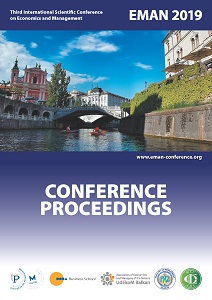LEADERSHIP SKILLS OF HOSPITALITY MANAGERS
LEADERSHIP SKILLS OF HOSPITALITY MANAGERS
Author(s): Réka Somlai
Subject(s): Business Economy / Management, Human Resources in Economy
Published by: Udruženje ekonomista i menadžera Balkana
Keywords: leadership skills;inter- and intrapersonal skills;hospitality managers;self-awareness;
Summary/Abstract: The research is inspired to study personal skills of Spanish and Hungarian hospitality professionals in order to compare their actual leadership skills with their belief of the skills they possess. In this research, a complex competency test, ProfileXT® is applied in order to receive reliable data of the participants’ profiles. The test analyses the complete personality and gives reports regarding cognitive capacity and strategies of thinking, behavioral traits, and fields of interests. Participants’ profiles include information about skills, what determines the effective behavior of a leader. The test among other information, examines communication skills, conflict resolution style, energy level, sociability, manageability, decisiveness, independence and objective judgement. The results are based on the competency profiles and a questionnaire which includes questions about the above-mentioned skills and participants indicate how successfully apply them at their job from their point of view. The Spanish and Hungarian manager profile differs in various aspects. Spanish respondents tend to follow fewer rules and require more independency. Hungarians are rather compromise in conflicts; Spaniards are less cooperative and more dominant. Spanish managers are more intuitive and emotional driven, while Hungarians are being more realistic. Hungarians are able to make more stable decisions, but at the slower pace than Spaniards. Comparing the profiles and the participant’s beliefs about their abilities, both groups gave higher scores for themselves than their profiles results. The tendency is even more significant at the Spanish sample. These results can be a base of developmental trainings or coaching sessions for each group. Furthermore, soft skills are very important in leadership, therefore developing them could be a focus point even before a leader gets promoted. These findings and other professional results suggest that skill development should start even at university and collage levels, than should also continue during each professional’s career path.
Book: EMAN 2019 / 3 – Economics & Management: How to Cope with Disrupted Times - CONFERENCE PROCEEDINGS
- Page Range: 7-16
- Page Count: 10
- Publication Year: 2019
- Language: English
- Content File-PDF

